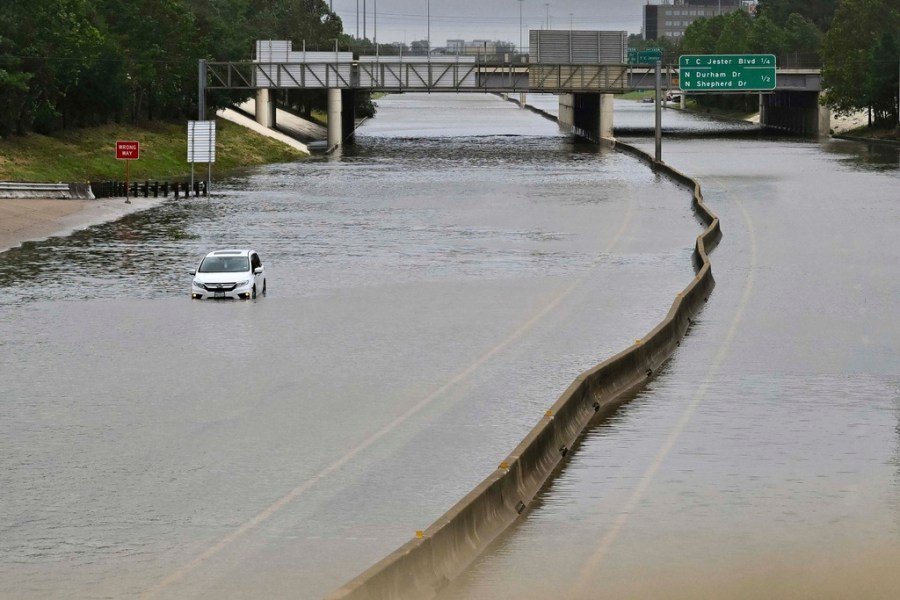
My parents’ home flooded on July 4. There were waves in their house by the time they left. If they had delayed leaving by even a few minutes, or if they hadn’t know exactly where to drive to reach higher ground, they would not have made it. Their neighbors, 30 feet away, were among the victims.
We saw so much kindness in the days after the flood. Before groups like Mercy Chefs and Samaritan’s Purse arrived to provide desperately needed food and physical help, two women who spoke only Spanish walked along the river dropping off fresh fruit. They wanted to help however they could. We ate ripe watermelon and pineapple on that first sad day while we dug through waist-high mud, silt and even horse manure from upstream, looking for anything to salvage and pausing only to allow search and rescue workers to clear victims’ bodies.
There wasn’t much to save. But there was so much kindness, so much help, so much understanding.
It was different when we turned to FEMA’s disaster assistance program. We know that FEMA isn’t an insurance policy; it won’t cover all of my parents’ losses. That isn’t the part of the story that I’m telling.
The part I’m telling is about FEMA’s bureaucracy, which desperately needs to be demolished and rebuilt.
My parents didn’t have flood insurance — their home was 30 feet above the river, and the water had never gotten close to that high. But the FEMA application doesn’t ask about flood insurance — it asks only whether you have homeowners’ insurance, which of course they did. The form threatens jail time if you lie, and so, after much debate, we answered that yes, they have homeowners’ insurance. FEMA took this to mean they had flood insurance that covered their losses. It took weeks of letters, calls and documents to clear up this one critical, verifiable fact.
There was also false hope given. The inspector who visited our home, nice as she was, incorrectly told us that FEMA would pay for our HVAC, septic, and well out of a separate pot of money, since those items are required to make a home livable. “Really?” I asked. “Wow! We weren’t expecting that.”
Well, it turns out she was wrong, which I would learn only after weeks of phone calls. (At least I think that’s the final answer.)
The first letter we received from FEMA after the flood said that my parents had been approved for $1,200 in home repairs. Did I mention that they lost everything? You may think this small amount was for immediate needs, but the same letter told them they were receiving $1,500 for immediate needs. The $1,200 was for home repairs based on the amount of damage the inspector saw. It acknowledged that this amount would not cover all of their losses.
A phone call led to an hours-long wait time that never decreased. We had too much to do to wait that long.
A series of letters came after that one, sometimes as many as four in one day, sent through a FEMA app that requires triple authentication, all while we were covered in mud and had no power, no wifi and no running water. The letters were impossible to understand. My parents outsourced this part of the flood recovery to me, and of course, I was glad to take it. How could they have done it themselves?
Then we got a letter saying their appeal had been denied. FEMA’s letters are written in terrible legalese — and I say this as a lawyer — but this one was clear: Their appeal was denied. Funny thing, because they hadn’t filed an appeal. And I say that as a state judge on an appeals court.
Another phone call, another wait time. Someone finally answered (let’s call her Pam) and told us to call the state to appeal, so I immediately called the state. But the woman who answered at the state told us we need to appeal through FEMA. Another call to FEMA, and Pam admitted she had misspoken earlier — yes, we appeal through FEMA, and no, our appeal hadn’t been denied, despite the letter expressly saying so.
The process for appealing is difficult to find. I was told to make a list of all of the items in my parents’ home. But my parents’ losses were much higher than the maximum recovery, so the list seems like begging for scraps — please give us money for that bottle of Tylenol that floated down the river.
I will spare you further examples of just how broken this bureaucracy is.
As a rule, you only encounter FEMA disaster assistance in your most desperate moments. I can’t imagine how a disaster victim who is suddenly homeless could navigate FEMA on her own, especially if she has just lost a family member or doesn’t speak English — or doesn’t speak legalese. Many would give up, either out of weariness or confusion. I’m tempted to give up.
This is not a new problem. Pam told me she knew the letters were unclear and misleading; they had been trying to change them for years, she said, so it probably wouldn’t happen. This is going to require outside help.
Katy Boatman was elected to the Fourteenth Court of Appeals, Place 6, in November 2024. She is board certified in civil appellate law and a member of the Texas Association of Civil Trial and Appellate Specialists.


